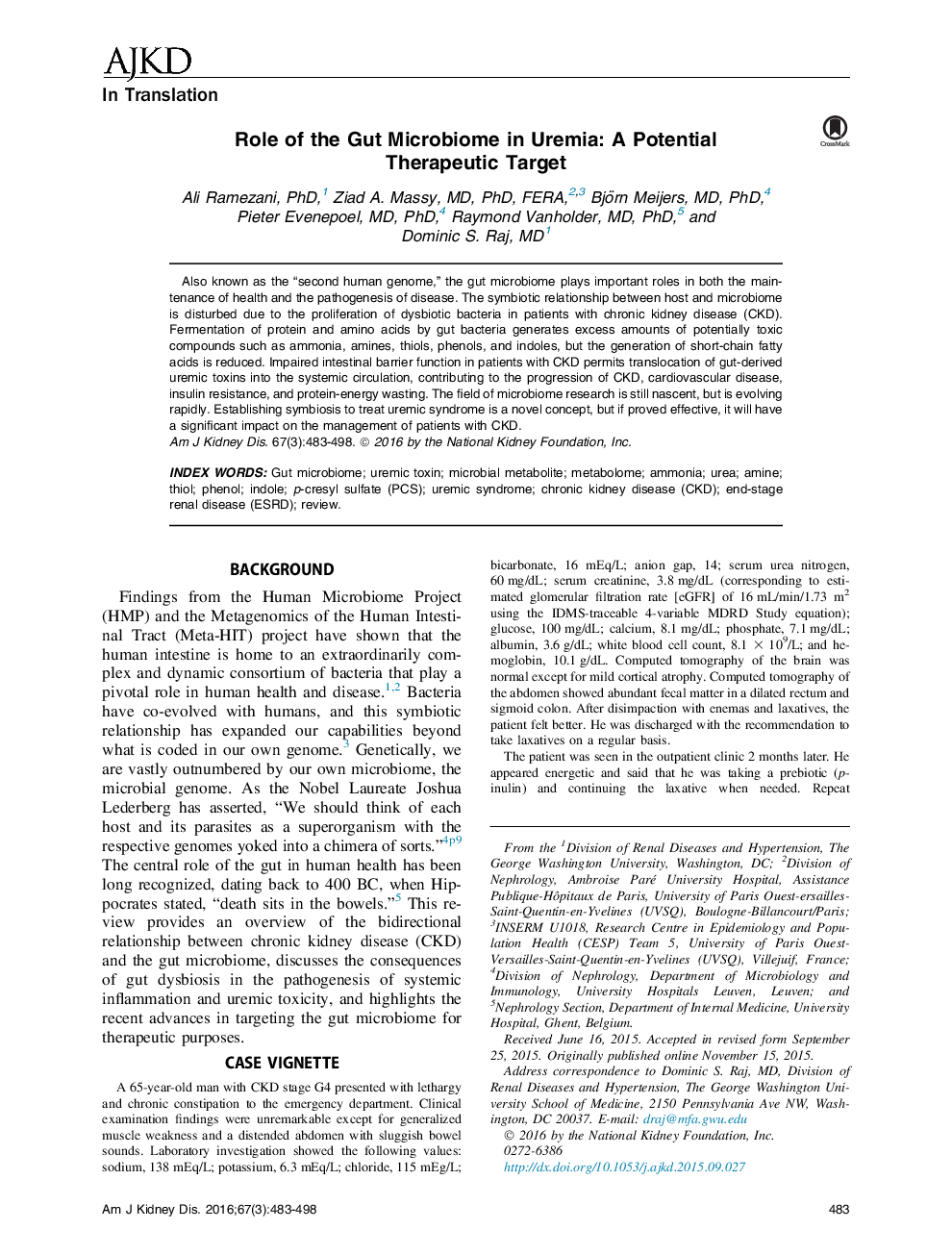| Article ID | Journal | Published Year | Pages | File Type |
|---|---|---|---|---|
| 3847402 | American Journal of Kidney Diseases | 2016 | 16 Pages |
Abstract
Also known as the “second human genome,” the gut microbiome plays important roles in both the maintenance of health and the pathogenesis of disease. The symbiotic relationship between host and microbiome is disturbed due to the proliferation of dysbiotic bacteria in patients with chronic kidney disease (CKD). Fermentation of protein and amino acids by gut bacteria generates excess amounts of potentially toxic compounds such as ammonia, amines, thiols, phenols, and indoles, but the generation of short-chain fatty acids is reduced. Impaired intestinal barrier function in patients with CKD permits translocation of gut-derived uremic toxins into the systemic circulation, contributing to the progression of CKD, cardiovascular disease, insulin resistance, and protein-energy wasting. The field of microbiome research is still nascent, but is evolving rapidly. Establishing symbiosis to treat uremic syndrome is a novel concept, but if proved effective, it will have a significant impact on the management of patients with CKD.
Keywords
Related Topics
Health Sciences
Medicine and Dentistry
Nephrology
Authors
Ali PhD, Ziad A. MD, PhD, FERA, Björn MD, PhD, Pieter MD, PhD, Raymond MD, PhD, Dominic S. MD,
